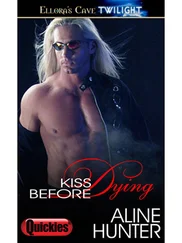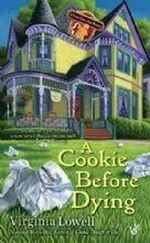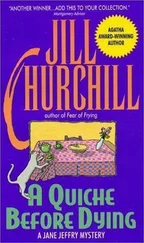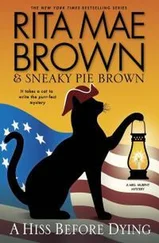Peter Dickinson - Some Deaths Before Dying
Здесь есть возможность читать онлайн «Peter Dickinson - Some Deaths Before Dying» весь текст электронной книги совершенно бесплатно (целиком полную версию без сокращений). В некоторых случаях можно слушать аудио, скачать через торрент в формате fb2 и присутствует краткое содержание. Год выпуска: 1999, ISBN: 1999, Издательство: Mysterious Press, Жанр: Старинная литература, на английском языке. Описание произведения, (предисловие) а так же отзывы посетителей доступны на портале библиотеки ЛибКат.
- Название:Some Deaths Before Dying
- Автор:
- Издательство:Mysterious Press
- Жанр:
- Год:1999
- ISBN:9780446561099
- Рейтинг книги:3 / 5. Голосов: 1
-
Избранное:Добавить в избранное
- Отзывы:
-
Ваша оценка:
- 60
- 1
- 2
- 3
- 4
- 5
Some Deaths Before Dying: краткое содержание, описание и аннотация
Предлагаем к чтению аннотацию, описание, краткое содержание или предисловие (зависит от того, что написал сам автор книги «Some Deaths Before Dying»). Если вы не нашли необходимую информацию о книге — напишите в комментариях, мы постараемся отыскать её.
Some Deaths Before Dying — читать онлайн бесплатно полную книгу (весь текст) целиком
Ниже представлен текст книги, разбитый по страницам. Система сохранения места последней прочитанной страницы, позволяет с удобством читать онлайн бесплатно книгу «Some Deaths Before Dying», без необходимости каждый раз заново искать на чём Вы остановились. Поставьте закладку, и сможете в любой момент перейти на страницу, на которой закончили чтение.
Интервал:
Закладка:
Now, as Norma stood panting amid the wreckage, Jenny whispered in her mind.
“Better stop. I’ve got a client at nine-fifteen.”
She took a deep breath, let it go with a whoosh and was Jenny again. For the moment her main superficial emotion was surprise. Why now? For years she had known how to control these angers, keep them rational, channel and focus the pressure onto a target—a jet, not an explosion. Why this sudden loosening? She stared at the wreckage of the laundry basket, sensing it to be an omen, but baffled how to read it.
Turning to the basin, she caught sight of herself in the mirror, a known face, her mother, just woken but still half drunk. She’d been crying, she noticed.
“You’re disgusting,” she told the image.
Furious again, but this time with her normal efficient Jenny-anger, she cleaned herself up and dressed in her grey suit, with pearl earrings and pin. No time for breakfast—she couldn’t have swallowed it anyway. Her briefcase and laptop were ready in the hall. She slipped a banana into the case and left. After locking the door she paused and gave the inner pillar of the absurd little portico a pat, a pat for the whole house.
“It wasn’t your fault,” she told it, as if speaking to a pet dog, made anxious by a spat among the humans. “You’re all right.”
2
By dusk there was a chill drizzle slanting from the northeast, more like February than late March. The timer had turned the lights on, as if the house was doing its best to look welcoming, but this evening that wasn’t enough.
Anyone coming new to the house would have noticed only—as Jenny herself had, first time—the Ashford Road roaring and stinking by, and then, once inside, would have been mainly impressed by the view across the Weald, with the roofs of oast houses poking above the treetops. One large defect, one medium asset, the little house a sort of null value in between. It had taken Jenny herself several weeks of living in it to appreciate the quirky personality to which she had spoken so affectionately that morning. The line of the road must have been changed after it was built, but before the terrace of basic nineteen-twentyish houses to its right, so that it stood at an obstinate slant both to them and to the bramble-tangled belt of scruffy woodland to its left. And it even more emphatically asserted its indifference to their respective regularity and wilderness because its builder had apparently been determined to cram all the stock ornamentation he could onto its frontage—a kind of flattened portico, with barley-sugar pillars; above that an iron balcony too narrow to stand on; at the southeast corner a squat spire with an elaborate lightning conductor, and best of all, the pairs of cherubim on either side, apparently supporting the upper windowsills. They had sulky expressions as if the weight gave them headaches. (Jeff, of course, hadn’t bought it for any of that. It had been what he could then afford, because of the road.)
This evening Jenny’s affection wasn’t enough. She couldn’t summon up the personality. The house was dead, empty, because Jeff wouldn’t be home for almost a week. She had spent most of the day on Trevor’s leavings, and had brought her own work back to fill the dismal hours, but that would make them no less dismal. And worse, she would spend them thirsting for a drink. She and Jeff usually had a couple of glasses of wine each with their supper and she was now habituated to that, but she had long ago recognised in herself the risk of going the same way as her mother—it was in her genes, she thought—and had made and kept an inner promise that she would never drink alone. She would keep it still, tonight, and for the next five nights, but it would be hell.
Numbly she let herself in, switched off the alarm and went upstairs. The bedroom was a strewn chaos. She’d forgotten that she’d left it like that, but clearing it up was something to do. She changed into jeans, but had hardly started on the mess when the doorbell rang.
She went down, put the front door on the chain and opened it a crack.
“Mrs. Pilcher?”
She recognised the voice at once.
“Oh, it’s you. You called this morning. I’m sorry, but I’m really not interested. The pistol doesn’t belong to me, and I know the owner doesn’t want to sell it.”
“I’m not trying to buy it. Please. I just want to talk to the owners.”
“I’m sorry. I’ve been asked not to talk to anyone about it. I should never have taken it to the show, but I didn’t know.”
“Please, if I could explain to you, then at least you could pass the message on. May I come in?”
“I don’t let people I don’t know in, especially at night. Sorry.”
She started to close the door. He resisted.
“Stop. Please. You’ve got to talk to me. Thing is, I’ve got the other pistol. And the box and all the trimmings.”
“You’ve got them with you?”
“They’re in the bank. Listen, I’m absolutely with you about not letting strangers in if you’re on your own. I’ve been waiting for you over at the pub. Suppose I went back there. Would you come and join me for a drink? Ten minutes only.”
Oh, Jesus, a drink, and not alone!…Jenny merely pretended to hesitate.
“Oh, all right. Ten minutes. I’ve got work to do.”
“That’s OK. I’m truly grateful. What’ll you have?”
“Draught stout, if they’ve got it.”
(The wine would be dire, and spirits risky.)
“It’ll be waiting for you.”
She closed the door and ran upstairs to check that he was crossing the road and not lurking in ambush for her behind the forsythia. He was still on the near pavement, waiting for a gap in the traffic, a large man who carried himself well. He was wearing a Barbour and tweed cap. The look was horsey country gentry, easy for a con man to fake, if he was one.
She counterdressed, for the hell of it, keeping the jeans but changing into her “A woman needs a man like a fish needs a bicycle” sweatshirt and butterfly earrings, and left without hurrying, nearly ten minutes after he had.
She and Jeff weren’t regular pub-goers, though there was a pleasant little one a couple of miles across the fields, along footpaths, to which they would sometimes walk out at weekends. The Frenchman across the road was not of that kind. Even out of season there was often a coach or two in its park. There was a bouncy castle behind, and it advertised itself with a gross cartoon of a grinning sausage in a chef’s hat serving sausages and mash to a family of salivating sausages.
The man was waiting without apparent impatience in a fake Victorian alcove in the saloon bar. The drinks were already on the table. His was Perrier. He rose and waited for her, smiling. Presumably he recognised her from the TV programme. His face was as military as his bearing, clean shaven, with an outdoor ruddiness. His grey hair, sparse but not balding, was cut short. His eyes were pale blue, with the stony, unimaginative look of a caste accustomed to command. They didn’t, to Jenny, seem in keeping with his voice, gruff and level but, she thought, too deliberately affable. She didn’t respond to his smile. He read the blazon on her bosom and grinned. She maintained the professional chill of her mien, but he didn’t seem put out.
“I’m sorry about this,” he said. “I know it’s an intrusion, Mrs. Pilcher. It’s very good of you to spare me the time. My name is Dick Matson, by the way.”
He produced a card and gave it to her. He worked, apparently, for a firm in Devon which dealt in agricultural feeds. His home address was near Tiverton. Jenny would have placed him in a considerably posher line of business.
“That’s all right,” she said. “I’ve got a few minutes. What do you want?”
Читать дальшеИнтервал:
Закладка:
Похожие книги на «Some Deaths Before Dying»
Представляем Вашему вниманию похожие книги на «Some Deaths Before Dying» списком для выбора. Мы отобрали схожую по названию и смыслу литературу в надежде предоставить читателям больше вариантов отыскать новые, интересные, ещё непрочитанные произведения.
Обсуждение, отзывы о книге «Some Deaths Before Dying» и просто собственные мнения читателей. Оставьте ваши комментарии, напишите, что Вы думаете о произведении, его смысле или главных героях. Укажите что конкретно понравилось, а что нет, и почему Вы так считаете.









